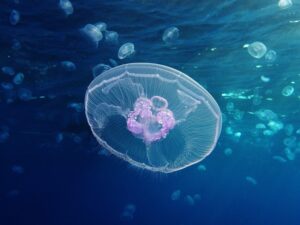Everyone knows that fish live underwater, but do they ever drink water? This might seem like an easy question, but the truth is not so simple. So, “Do Fish Get Thirsty?” Join KnowAllAnimals to explore the details in the following article!
1. Surprising Facts About Fish That Will Astound You
I bet neither you nor I ever wondered about this before reading this article. I always thought that all fish need to drink water, until my 4-year-old nephew asked me if fish get thirsty like humans.
Of course, as a good uncle, I had to find the answer for him. So, do fish drink water?
The short answer is yes. But it depends on what kind of fish you’re talking about. Generally, freshwater fish do not drink water because it would make their blood too diluted. Saltwater fish, on the other hand, drink a lot of water to retain water in their bodies.
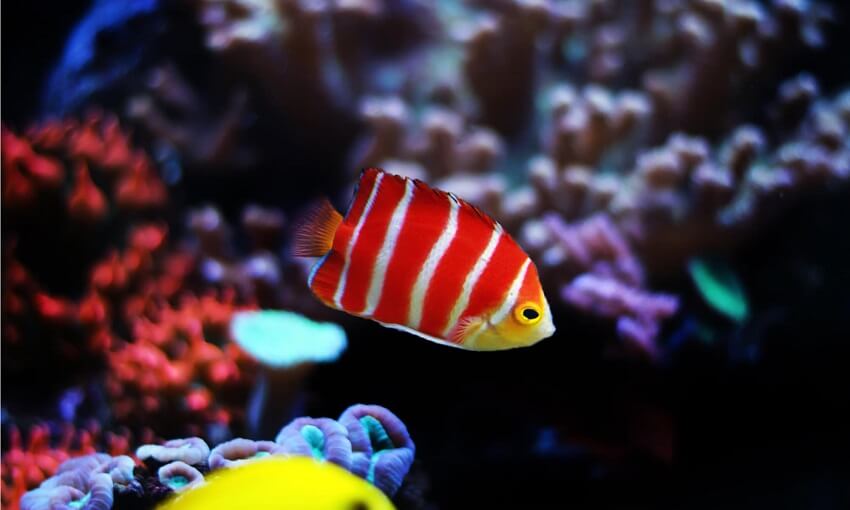
2. Do Fish Get Thirsty? The Truth About How Fish Drink Water
Let’s find out:
2.1. Do Fish Get Thirsty?
When talking about whether fish drink water, I can’t help but wonder if they ever feel thirsty. For us, we only drink water when we feel thirsty. The sensation of thirst is a signal from our body telling us we need to rehydrate.
But the issue is a little more complex for fish.
Fish live their entire lives in water, so how could a creature living in an aquatic environment feel thirsty? Do you feel hungry when your house is filled with food?
However!
The answer is not that simple. Saltwater fish and freshwater fish have different biological structures, which leads to different behaviors when it comes to drinking water.
Fish don’t actually need to feel thirsty to drink. Drinking water is simply a reflex that happens without a conscious decision from their bodies. Therefore, we can say that fish never truly feel thirsty.
Fish don’t actually need to feel thirsty to drink.
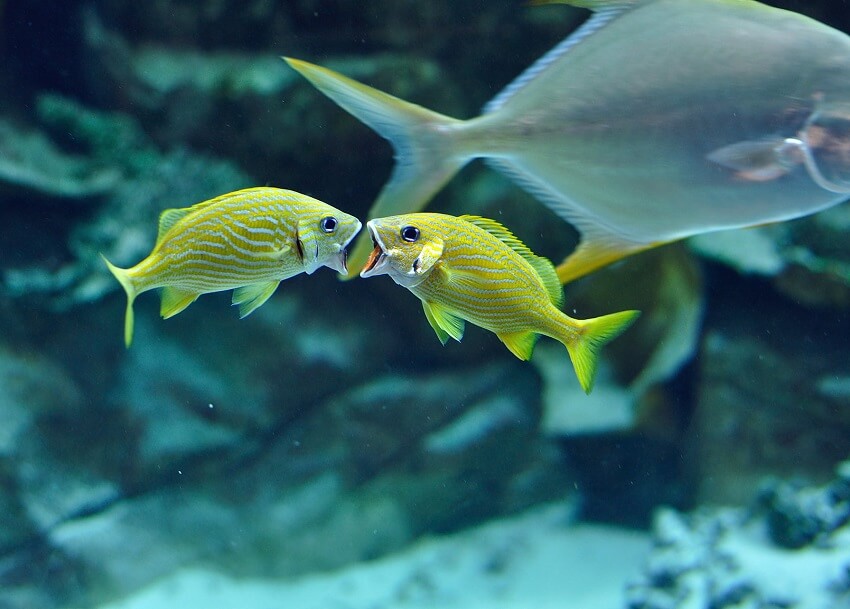
2.2. The Drinking Mechanism of Freshwater Fish
Actually, the salt concentration in the blood of freshwater fish is much higher than that of the surrounding water. Therefore, if freshwater fish were to drink water, their blood would become too diluted. This is why freshwater fish do not drink water.
Instead, they use osmosis. Freshwater fish absorb water through their gills and skin. Additionally, they excrete a very dilute urine to eliminate excess water from their bodies.
2.3. The Drinking Mechanism of Saltwater Fish
In comparison to their surrounding environment, saltwater fish have much more dilute blood. Therefore, they are constantly at risk of dehydration. This is why saltwater fish must actively drink water. Thanks to a special mechanism in their gills, saltwater fish can drink seawater, process it, and excrete all the excess salt.
2.4. What About Fish That Can Live in Both Saltwater and Freshwater?
There are not many fish species with this ability. A classic example is the salmon, which can migrate from saltwater to freshwater. So, do they need to drink water? How can they survive in two completely different environments?
Young salmon are born in freshwater, and they must undergo three major physiological changes before they leave their birthplace and return to their saltwater home. First, they will drink a lot of water. Next, their kidneys will reduce the amount of urine they produce. And the most important change is that the mechanisms in their gills will begin to work in reverse—they will excrete salt instead of absorbing it.
When adult salmon need to return to freshwater to spawn, they will spend a few days in an intermediate environment, such as an estuary (coastal waters or areas where the seabed is exposed at low tide). Here, their bodies will reverse all the physiological changes they underwent as juveniles to be able to survive in freshwater. So, the answer is that fish that can live in both freshwater and saltwater do drink water.
2.5. Do Other Aquatic Animals Drink Water?
Of course, fish aren’t the only animals that live in water. What about their neighbors? Do whales, dolphins, or even turtles need to drink water? We know that these animals, like all others, need water. The question is whether they drink water from their surrounding environment.
2.6. Do Whales Drink Water?
Whales are classified as marine mammals. They need to hydrate either by drinking the surrounding water or by absorbing it from their food. Whales have very large kidneys, which can excrete excess salt without losing too much water.
Some other interesting facts about whales are that they don’t sweat and don’t lose water when they breathe. Humans lose a significant amount of water when they breathe out. The reason for this difference is that the air at the ocean’s surface is saturated with water vapor, so whales don’t lose water when they exhale.
2.7. Do Dolphins Drink Water?
Similar to whales, dolphins are also marine mammals. One theory is that dolphins get their water from their food. Squids, fish, and octopuses contain a lot of water, and dolphins will absorb it from their prey. This method is much more efficient than directly drinking seawater.
Another theory is that when dolphins swallow their prey, they also ingest a certain amount of the surrounding water. Furthermore, dolphins have a very advanced filtration system. This incredible mechanism allows them to easily extract additional salt from their urine, which helps them separate the salt from the seawater they drink.
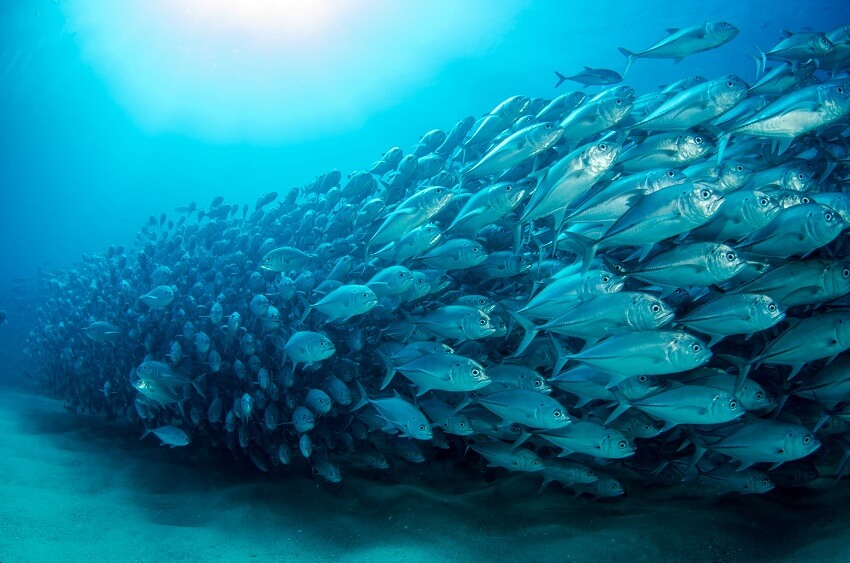
2.8. Do Turtles Drink Water?
Turtles are reptiles that can live on both land and in water. But since turtles spend most of their time on land, their bodies need to be fully hydrated. Therefore, we can conclude that turtles do drink water.
Turtles primarily drink water when they are swimming or wading. Some species of sea turtles that live mainly in saltwater environments need to filter the salt out of the water they drink. To do this, sea turtles have a special gland behind their eye sockets called a “salt gland.”
When a sea turtle drinks salt water, the salt is transferred into its bloodstream and travels through blood vessels to the salt gland. The salt gland then produces a solution that is twice as salty as the water the turtle drank and expels it through the corners of its eyes.
Because turtles drink water while they are swimming, those who keep pet turtles need to regularly clean their tanks and change the water. In the wild, animal waste is processed by other organisms. However, in a closed captive environment, waste settles at the bottom of the tank and accumulates there. For this reason, turtle owners need to regularly clean and change the water to minimize the risk of their turtles getting sick.
2.9. What Happens When Marine Mammals Drink Too Much Seawater?
This is a complex issue. If a marine mammal ingests too much salt, it can start to experience some dangerous symptoms, such as kidney failure, liver failure, and other issues with mobility. This is because marine mammals need to filter and excrete excess salt when they drink seawater, which helps them avoid internal damage caused by salt overload.
2.10. Do Fish Urinate?
Everyone knows that fish “poop.” The evidence is the waste that appears at the bottom of your fish tank if you don’t clean it regularly. But what about urinating?
If you stop cleaning your fish tank, it will eventually start to smell like ammonia. So, the answer is clear, right? Yes, fish do urinate.
However, each species has a different way of doing it, but generally, fish urinate continuously.
Most fish urinate through their urinary pore or gills. Fish that urinate through their gills excrete waste that has been filtered by their kidneys. On the other hand, saltwater fish urinate through their gills while freshwater fish use their urinary pore.
As mentioned above, saltwater fish live in an environment with a higher salt concentration than their bodies. Therefore, saltwater fish absorb a large amount of salt from their surroundings, and they need to excrete this salt from their bodies. Meanwhile, freshwater fish need to excrete excess water from their bodies.
2.11. The Kidneys of a Fish
All fish have two kidneys. The posterior kidney filters waste through the urinary pore, and the anterior kidney filters waste through the gills.
For saltwater fish, the kidneys excrete ions and retain water, and they eliminate most of their waste through their gills. For freshwater fish, their kidneys work in the opposite way. They excrete water and retain ions.
2.12. Fish Urine
The main component of fish urine is ammonia. Ammonia exits the fish’s body through its gills, and again, it depends on what type of fish we are talking about.
Furthermore, fish urine also contains the organic acids creatine and creatinine, amino acids, and a small amount of urea. Freshwater fish urine is mostly water, while saltwater fish urine is mostly salt.
Saltwater fish don’t produce a lot of urine, but it is extremely concentrated. In contrast, freshwater fish produce a lot of urine.
Fish urine is very different from human urine. Fish urine is often black or gray.
2.13. Kidney and Urinary Tract Diseases in Fish
Just like us, fish can also suffer from kidney and urinary tract diseases. These diseases often appear in fish due to a parasite called Renal Dropsy. This parasite commonly affects carp and goldfish. Fish infected with this parasite often have swollen bellies due to fluid accumulation when the kidneys are no longer functioning.
Another parasite called Sphaerospora angulate also commonly causes kidney failure in carp species. This parasite causes the host’s abdomen and eyes to swell and it cannot live for more than 6 months.
Additionally, commercial juvenile salmon and adult salmon often suffer from proliferative kidney disease. The symptom of this disease is that the fish becomes unusually lethargic and slow.
According to some studies, fish urinate on other fish when they want to show the other fish who the boss is.
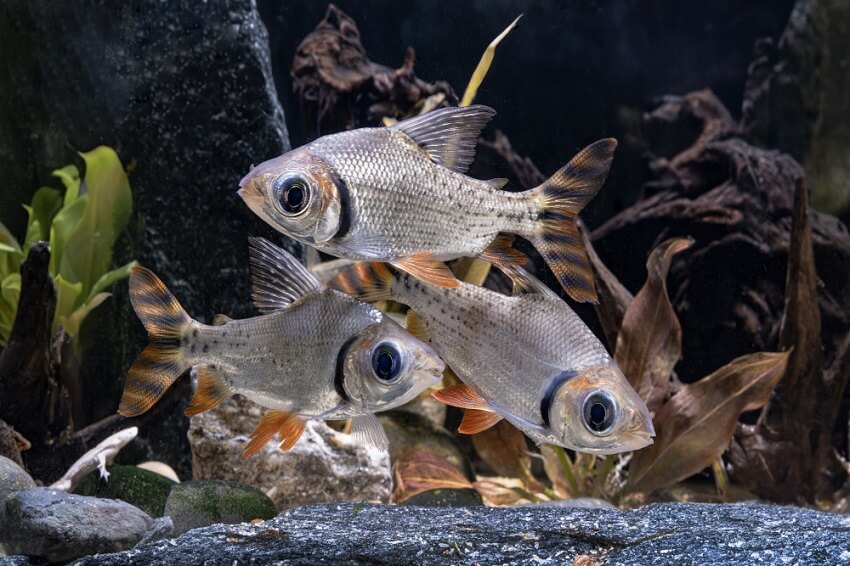
3. What Have We Learned?
Of course, fish live in water. Some species live in saltwater environments, while others live in freshwater.
Although some fish can survive for a few days on land, most will die if they cannot return to water. This is because their lungs are structured differently from those of mammals. When a mammal breathes, its lungs fill with air, and specialized cells filter the oxygen from the air. During this process, the lungs remain completely dry and free of liquid. In contrast, fish take water into their mouths and use their gills to filter oxygen from the water.
Furthermore, all animals need water to survive, so they must all drink or absorb water, including those that live underwater. How aquatic animals get the water they need depends on their environment and their biological mechanisms.
Saltwater animals need to maintain a balance of salt concentration in their bodies because they live in a high-salinity environment. Therefore, their bodies have adapted to excrete large amounts of excess salt. Animals in freshwater do not face this problem, but they must maintain a safe salt concentration in their bodies. Marine mammals have a supplementary mechanism to keep their lungs dry while maintaining safe levels of water and salt in their bodies.
4. Other Questions
Can you use tap water for a Betta fish?
Yes, you can. You should not use distilled water because it doesn’t contain enough oxygen and minerals for the fish to live healthily. Tap water is actually the best option. You should let the tap water “breathe” for about one day to let the chlorine dissipate, and then bring it to room temperature. You can also use other water-treatment products.
Do fish cry?
Fish do not cry like humans. They lack the cerebral cortex and nervous system to produce emotional responses like we do. However, scientists have discovered that they do cry, but only with sound.
Do fish get bored?
The answer is yes, especially goldfish. Signs of boredom can be mistaken for symptoms of a lack of oxygen, or some people might think they are begging for food. Goldfish rarely beg for food, and when they lack oxygen, they will only swim near the surface. You can add another fish or some aquatic plants to the tank to make it happier.
5. Conclusion
The question, “Do fish get thirsty?“, may seem simple, but it opens up a world of fascinating information about how fish survive. Each species, depending on whether it lives in a freshwater or saltwater environment, has a different mechanism for absorbing and regulating water. Understanding this not only helps us appreciate the world of aquatic life but also reveals the wonders of nature in maintaining the balance of life.


